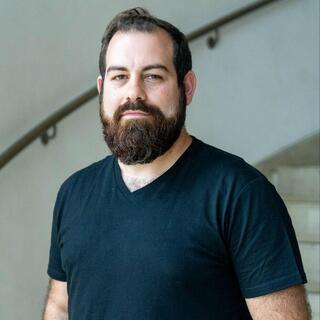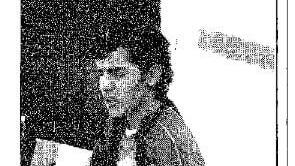The Public Defender's Office on Wednesday filed a request for a retrial in the case of Sufian Masluhi, who was convicted in 1994 of murdering jewelry dealer Menashe Atar. The request claims Masluhi’s confession—both to police and in court—was false and made under severe distress following a prolonged period in isolation during which he was allegedly sexually assaulted by a police informant placed in his cell.
Masluhi, who became known in the media at the time as the “Israeli Michael Jackson” due to his resemblance to the pop star, confessed while in custody on an unrelated matter at age 18. During his detention, police questioned him as part of an investigation into three unsolved murders. They showed him investigative material from the cases and used his statements to implicate eight others—innocent individuals with no connection to the murders.
Despite having no knowledge of the cases, Masluhi cooperated, driven by emotional vulnerability and promises of benefits. He quickly became a key witness in all three investigations. In the case of Atar’s murder, Masluhi even confessed to helping plan and carry out the crime—though he had no involvement.
Eventually, all eight other defendants were acquitted after standing trial, while Masluhi was the only one convicted, based solely on his confession. This conviction came shortly after he was convicted in a separate case, not addressed in the retrial request, and was already serving a life sentence plus seven years. Under a plea deal, he received an additional life sentence to be served concurrently. His total sentence was later commuted by the president to 42 years, with a full release date set for Sept. 1, 2036.
Get the Ynetnews app on your smartphone: Google Play: https://bit.ly/4eJ37pE | Apple App Store: https://bit.ly/3ZL7iNv
In the retrial request, Masluhi argues that a grave miscarriage of justice occurred. His attorneys, Moran Carmon and Noa Zeira of the Public Defender’s Office, say several risk factors for false confession existed. Masluhi, then a young man barely above the age of minority, was detained under harsh conditions for over a year, including prolonged isolation and sexual abuse by a cellmate-informant—acts the court confirmed occurred and which Masluhi says were non-consensual.
Masluhi's personal background also made him particularly vulnerable: an Arab from East Jerusalem, openly gay, a transgender individual who worked in prostitution, and unrepresented during questioning. These factors, combined with the material police shared and the incentives offered, led him to fabricate details and falsely implicate others from Tel Aviv’s marginalized communities.
Because Masluhi accepted a plea deal, his version of events was never scrutinized in court. However, his credibility as a witness was harshly rejected by the court, which found his account implausible and exonerated the other defendants. The retrial request cites these judicial findings, along with additional evidence not previously considered, that contradict Masluhi’s confession.
According to the petition, “More than 30 years later, the time has come to correct this moral failure, which saw nine innocent people prosecuted based on fabricated cases. Only one false conviction remains standing—this final correction is essential to restore justice.”
Unsolved murders and a coerced confession
The murder of Menashe Atar, who was robbed and killed outside his home in Ra’anana in January 1990, was one of three high-profile unsolved murder cases in the early 1990s. In April 1992, the body of Avraham Greenberg was found in his Tel Aviv home, showing signs of violence. In August that year, the body of Bella Weinstein was discovered on a Tel Baruch beach; she had been strangled.
In March 1993, Masluhi, then 18, and his 17-year-old partner Yehia Malihi were arrested in connection with the murder of a former roommate. While in custody, Masluhi came into contact with a special investigative team formed to crack the three cold cases. Shortly afterward, police announced all three had been solved and filed indictments against nine suspects. All but Masluhi denied the charges and went to trial—where all eight were ultimately acquitted.
In his petition, Masluhi—who says he has since undergone rehabilitation in prison—claims his confession was the result of desperation, isolation and abuse. He alleges that he fabricated details fed to him by investigators and falsely implicated both friends and rivals, placing them at the murder scenes with no basis in reality.



